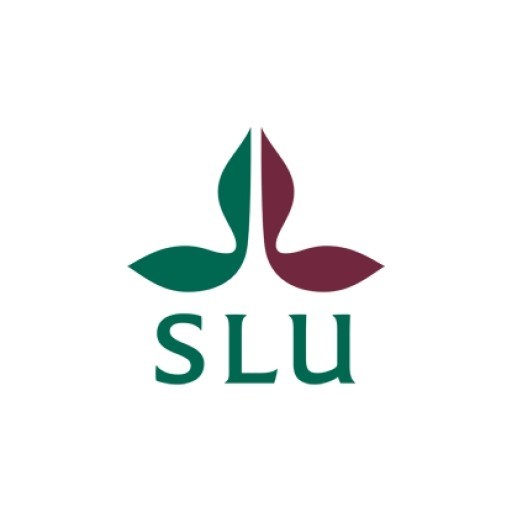Photos of university / #sunderlanduni
The Bachelor of Science with Honours in Life Sciences at the University of Sunderland is an engaging and comprehensive undergraduate program designed to equip students with a broad understanding of biological sciences and their applications. This degree course covers a wide range of topics, including cell biology, genetics, ecology, physiology, microbiology, and biochemistry, providing a strong foundation for those interested in pursuing careers within healthcare, research, environmental management, or biotechnology sectors. Throughout the course, students will develop essential laboratory skills, critical thinking abilities, and practical experience through hands-on experiments and real-world projects, preparing them for the challenges of modern scientific careers.
The program is structured to promote both theoretical knowledge and practical skills, encouraging students to explore different areas of life sciences and identify their specific interests. In addition to core modules, students have the opportunity to engage in research projects, fieldwork, and industry placements, which enhance their employability and professional development. The curriculum is regularly updated to incorporate the latest scientific advances and industry standards, ensuring graduates are well-prepared for the evolving scientific landscape. The university emphasizes a flexible learning environment, offering various modes of study, including full-time and part-time options, to accommodate different student needs.
Students will benefit from excellent teaching facilities, including state-of-the-art laboratories and resources, as well as access to experienced academics and industry professionals. The program also provides opportunities for interdisciplinary learning, for example, by integrating aspects of environmental science, biomedical sciences, and biochemistry, reflecting the interconnected nature of biological disciplines. Upon successful completion of the course, graduates will be equipped with the knowledge, skills, and confidence to pursue diverse careers in scientific research, healthcare, environmental conservation, and related fields, or to continue their studies through postgraduate options. Overall, the BSc (Hons) in Life Sciences at Sunderland aims to foster a passion for discovery, critical inquiry, and lifelong learning in the dynamic field of biological sciences.
The BSc (Hons) in Life Sciences at the University of Sunderland provides students with a comprehensive understanding of the fundamental principles that underpin the biological sciences. This degree program is designed to equip students with a broad knowledge of various biological disciplines, including microbiology, genetics, ecology, human biology, and biochemistry. Students will explore the complexities of living organisms, from microscopic bacteria to complex ecosystems, developing a deep appreciation of biological diversity and the processes that sustain life.
Throughout the course, learners will engage in practical laboratory work, field studies, and research projects that enhance their scientific skills and enable them to apply theoretical knowledge to real-world scenarios. The program emphasizes the development of critical thinking, analytical skills, and problem-solving abilities, preparing graduates for careers in sectors such as healthcare, research, environmental management, and education. Students will also have opportunities to work on current scientific issues, participate in innovative projects, and develop a professional understanding of ethical considerations in biological sciences.
The curriculum includes modules on cell biology, molecular biology, genetics, microbiology, physiology, ecology, and environmental biology. These modules are complemented by work-related learning and optional modules that allow students to tailor their studies according to their interests and career aspirations. The program also prepares students for postgraduate study or employment by fostering transferable skills such as data analysis, scientific communication, and teamwork.
Additionally, the university’s strong links with local industries and research institutions provide students with real-world insights and opportunities for work placements. Graduates of this program will be well-positioned to pursue careers in biomedical research, environmental consultancy, science communication, or further postgraduate studies. The BSc (Hons) in Life Sciences at Sunderland aims to produce well-rounded scientists who can contribute meaningfully to scientific advancements and address global biological challenges.
Entry requirements typically include a minimum of 48 UCAS tariff points from relevant Level 3 qualifications such as A-levels, BTECs, or equivalent qualifications in science-based subjects like Biology or Chemistry. Applicants may also be considered if they hold a relevant foundation or access course qualification. Evidence of good literacy and numeracy skills is required, often demonstrated through GCSEs or equivalent qualifications, with a preference for GCSE grade C/4 or above in Science and English. International students must meet the English language proficiency requirements, usually a minimum IELTS score of 6.0 with no band less than 5.5, or equivalent. Prior relevant work experience or demonstrable interest in Life Sciences can strengthen application consideration. Applications are assessed holistically, taking into account academic achievements, personal statement, and references. There are no specific prerequisites for entry onto the course, but a strong interest in biological sciences, ecology, genetics, microbiology, or related fields is advantageous. Candidates are encouraged to submit a well-written personal statement outlining their passion for Life Sciences and career aspirations. The programme is also open to postgraduate students with relevant qualifications. Additional requirements may include a health declaration or DBS checks, depending on placement requirements. The university values diversity and encourages applications from a wide range of backgrounds. Mature students and those returning to education are considered on an individual basis and may be asked to provide additional evidence of their suitability for the programme. Applicants are advised to refer to the official university website for the most current entry criteria before applying.
Funding for the BSc (Hons) in Life Sciences at the University of Sunderland can be obtained through various channels to support students throughout their studies. The university offers a range of scholarships and bursaries aimed at both domestic and international students. For home students, government-funded loans and grants are available, including the Student Loan Company (SLC) support, which can cover tuition fees and living costs. International students are advised to explore scholarships specific to their country of residence or academic achievement awards provided by the university. The university also participates in the UK Government's postgraduate loans scheme, which students may access if they pursue the program at a postgraduate level or decide to continue their education beyond the bachelor's degree.
In addition to government funding, students can apply for university-specific scholarships, which are often awarded based on academic merit, financial need, or both. The Sunderland Award and other merit-based scholarships provide financial support to outstanding students entering the program. Part-time work opportunities are also available on campus, allowing students to gain income while studying without compromising their academic commitments. The university’s Career Service offers guidance on how to find suitable employment and manage finances during the course.
Moreover, students are encouraged to seek external funding from their local authorities or private organizations that may offer grants for students involved in life sciences or related disciplines. The university provides comprehensive advice and support to help students identify and apply for financial aid options suitable to their circumstances. There are also specific programs designed to support students from underrepresented backgrounds, including bursaries for mature students, care leavers, or students with disabilities.
Overall, the university emphasizes a comprehensive support system to ensure students have access to sufficient financial resources, enabling them to focus on their studies and achieve their academic and career goals in the life sciences. It is recommended that interested students consult the university’s official website or contact the admissions office for detailed, up-to-date information regarding available funding opportunities and application procedures.
The Bachelor of Science (BSc) in Life Sciences at the University of Sunderland offers students a comprehensive introduction to the fundamental principles of biological and biomedical sciences. The programme is designed to develop a deep understanding of living organisms, their processes, and their interactions within ecosystems, as well as providing essential skills for careers in healthcare, research, and related fields. Students will explore a range of topics including human biology, genetics, microbiology, ecology, and physiology, enabling them to critically analyze scientific literature and develop practical laboratory skills. The curriculum emphasizes both theoretical knowledge and applied techniques, preparing graduates for employment or further study in life sciences, healthcare, or scientific research. The programme often incorporates laboratory work, field trips, and project-based assessments to enhance experiential learning. Additionally, students may have opportunities for work placements or collaborations with industry partners, which foster real-world experience and professional networking. The University of Sunderland's facilities include well-equipped laboratories and resources that support hands-on learning. Graduates of this programme are equipped with a solid foundation in biological sciences, analytical skills, and scientific communication, making them suitable for careers in biotechnology, environmental management, pharmaceuticals, or pursuing postgraduate studies. The programme typically spans three years full-time study, with flexible study options available, and aims to produce well-rounded scientists capable of addressing contemporary biological challenges. Support services, academic guidance, and an active student community further complement the learning experience, ensuring students are prepared for the diverse demands of careers in life sciences.










